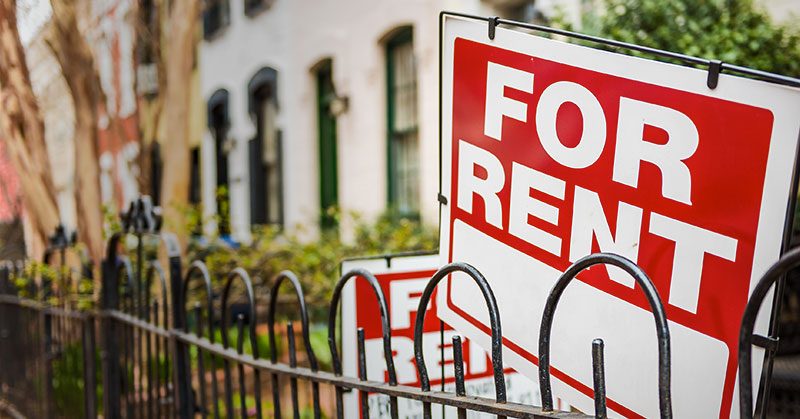When military families buy a home near one duty station and are sent somewhere new, renting can be a great alternative to selling the property. Renting your home may be option If the property is rented at a price that covers the monthly mortgage payments, the family can live on the BAH (Basic Allowance for Housing) at their next duty station. Having a rental property essentially allows you to build equity in your home without paying for housing at both locations.
However, becoming a landlord is not always an easy adventure. When considering renting your home, keep these things in mind.
- Hire a property manager. If you have a newer home, the regular maintenance and upkeep should be minimal. You may be tempted to manage it yourself from a distance, especially if you are renting it to an acquaintance or colleague. What could go wrong? Many things. If there is an emergency water leak or heating failure in the middle of the night, you can’t waste time using Google to find a plumber or repairman. If there are legal issues with the tenant or the payments, you don’t want to go through the eviction process on your own. Property management companies will take a portion of your rental income (typically around 10%), but in return they will handle emergencies and repairs. They also take care of legal issues like designing the lease, conducting credit checks for prospective tenants, and filing eviction paperwork when payments fall behind. Finding the right company can make your landlord experience more successful.
- Take credit scores seriously. When screening potential tenants, pay attention to their credit. A low score is a huge red flag! These tenants can present potential problems: late payments, property damage and other unpleasant issues.
- Reinvest your rental income. Ideally, your monthly rent should cover your mortgage payment, property management fees, taxes, insurance and additional costs. If you are making a profit on the property, don’t use it as spending money. Instead, I highly recommend that you save the extra money in a special account for long-term repair projects. You may not need to paint, replace carpets, repair the roof, or stain the deck this year. But when those repairs are needed, you’ll want to have funds saved to cover them.
- Ensure renters are following their contract. Just because the contract says “No pets allowed” doesn’t mean the tenants are following the rules. A property management company should conduct screenings of the exterior and interior of your property, then send you photos of the current condition. Not only will this alert you to lease violations, but it will also help you plan long-term repair projects.
- Don’t rely on a local friend. When you move, it might seem easy to have a friend drive by the house to check on things. Maybe they are handy enough to be on-call for repairs. But unless your friend is listed in the lease agreement, they don’t have any authority on the property, and the tenant can deny them entry. Plus, if your friend is in the military, they may get orders to move. Using a property management company will ensure consistent maintenance on your home.
- Make sure you have good insurance. As a homeowner, you are required to have property insurance. In some areas, you may need additional coverage for floods, wind and hail. Insurance costs are typically paid through your mortgage escrow account, but don’t ignore them when planning your annual budget or filing your taxes. Check with your lender about necessary coverage!
- Don’t rely on the rental income to pay the mortgage. It’s wonderful to have renters whose monthly payments cover your mortgage. However, a landlord should always have enough savings to cover at least two months’ mortgage out of pocket. Your tenants may fall behind on payments. They may break their lease early because of military orders. Or the property might sit empty for a while in between tenants. Your BAH probably won’t cover both your current housing and your mortgage payments, so it is your responsibility to have a cushion of savings.
Part of military life means moving– and renting your home might just be a good fit for your family. Making sure you’re protecting your investment and avoiding common pitfalls will help make your experience a pleasant one. Share your landlord tips with us in the comments!






Love this, great tips for becoming a landlord. We have a lot of clients that move and then rent their last place out. Going to share these tips with them.